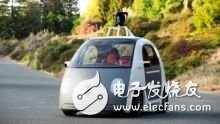I recently read an excellent article on "MIT Technology Review" entitled "Why Self-Driving Cars Must Be Programmed to Kill". This article locks a tricky question: “How do you react to the reaction of autonomous vehicles when encountering an inevitable accident? Should auto-driving vehicles minimize the loss of human life, or even sacrifice the occupants of the car? or Is it supposed to protect all passengers at all costs? Should it be randomly chosen between these two extremes?" In the article, an imaginary crisis is also cited as an example: ten people suddenly appear on the road, the driver is driving at a high speed and it seems that the car cannot be driven in time; then the driver should hit the road to save his life. One or all pedestrians, still risking their lives to turn at high speed? The crux of the matter is that at some point in the future, automotive engineers need to help automate driving cars to make ethical decisions; if so, who can choose the most “ethical†approach? When I was pondering this, I suddenly flashed a flash of light: "Why do we insist on a self-driving car to make a choice about life and death?" Of course, I want to save the lives of the most innocent pedestrians as much as possible, but I don't want to hurt the passengers in my car, and I certainly don't want to die. We ourselves assume an extreme situation without a single correct answer. Given this uncertainty, why don't we let the car do this unpleasant moral choice? After that, when the survivor investigates the accident, he can say, "Okay... The car just follows its program." According to the digital logic of autonomous driving technology, the only option now is to “save all passengers at all costs,†but human life and most moral choices are much more complicated; according to the survey, most drivers say they will brag in a pinch. Life is dangerous to save others (unfortunately the survey is to ask passers-by, not the owner of the self-driving vehicle). Programmable car As autonomous vehicles become more and more intensively developed, there is a solution that can expect such vehicles to be more flexible and personal--pre-programmed with the car's personal preferences to pre-programmed the behavior of the car. On the surface, it is disturbing to let autonomous vehicles read the minds of the owners and play the role of God; but at the current rate of technological change, some versions of this scheme seem inevitable. The programmability of autonomous vehicles has allowed people in the driver's seat to make decisions without actually driving the vehicle; the question now is how to make the decision-making process more human. In a situation that is less relevant to human life, I now think that "programmability" can make autonomous vehicles "more fun to drive"; when I enter my own self-driving new car, shouldn't I choose my day? How do you want to drive my car? As my friend Brian Santo said: "You may have a neatly arranged drop-down menu, just like a Word application." Those "driving mode" options, from "old lady mode (that is, quite cautious)" to "Don't be a Boston little yellow driver", there can be many changes in the middle... Yes, because I bought a self-driving car, I It may not be necessary to operate the steering wheel and the brakes on most of the time; but I can still "direct" the car to my personal favorite style or mood.
Slim Led Panel Light includes round and square two shape frame. This type of thin light body is ultra slim and easy to install. It is made by aluminum frame and iron back cover. We are the manufacturer of producing energy saving interior lighting. There are three color temperatures with cool white, warm white and natural white of panel lights. Besides it is adjustable among the three color temperatures. The unique feature of led Slim Panel Light is: CRI>80, PF>0.5. These panels are mainly apply to home, office and school, etc.
Slim LED Panel Light Led Slim Panel,Slim Panel Light,Ultraslim Led Panel,Led Panel Ultraslim Jiangmen Lika Lighting Electrical Appliances Co., Ltd , https://www.lika-led.com